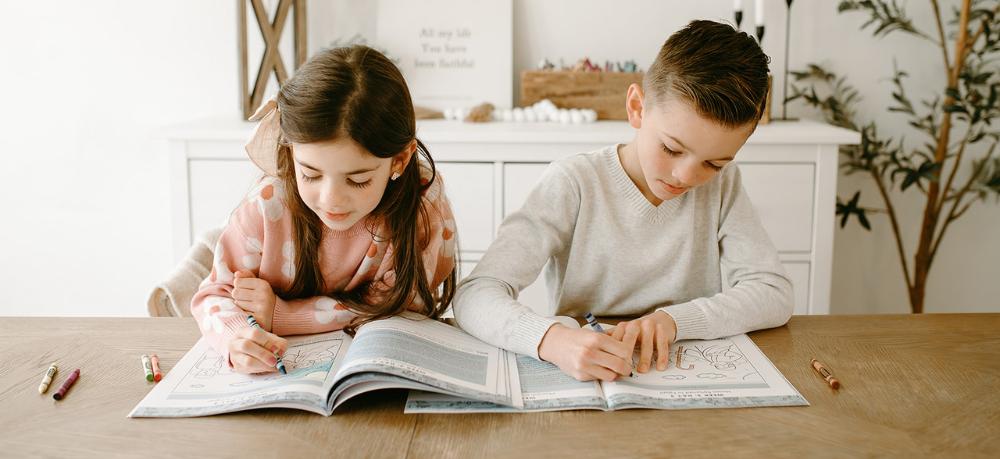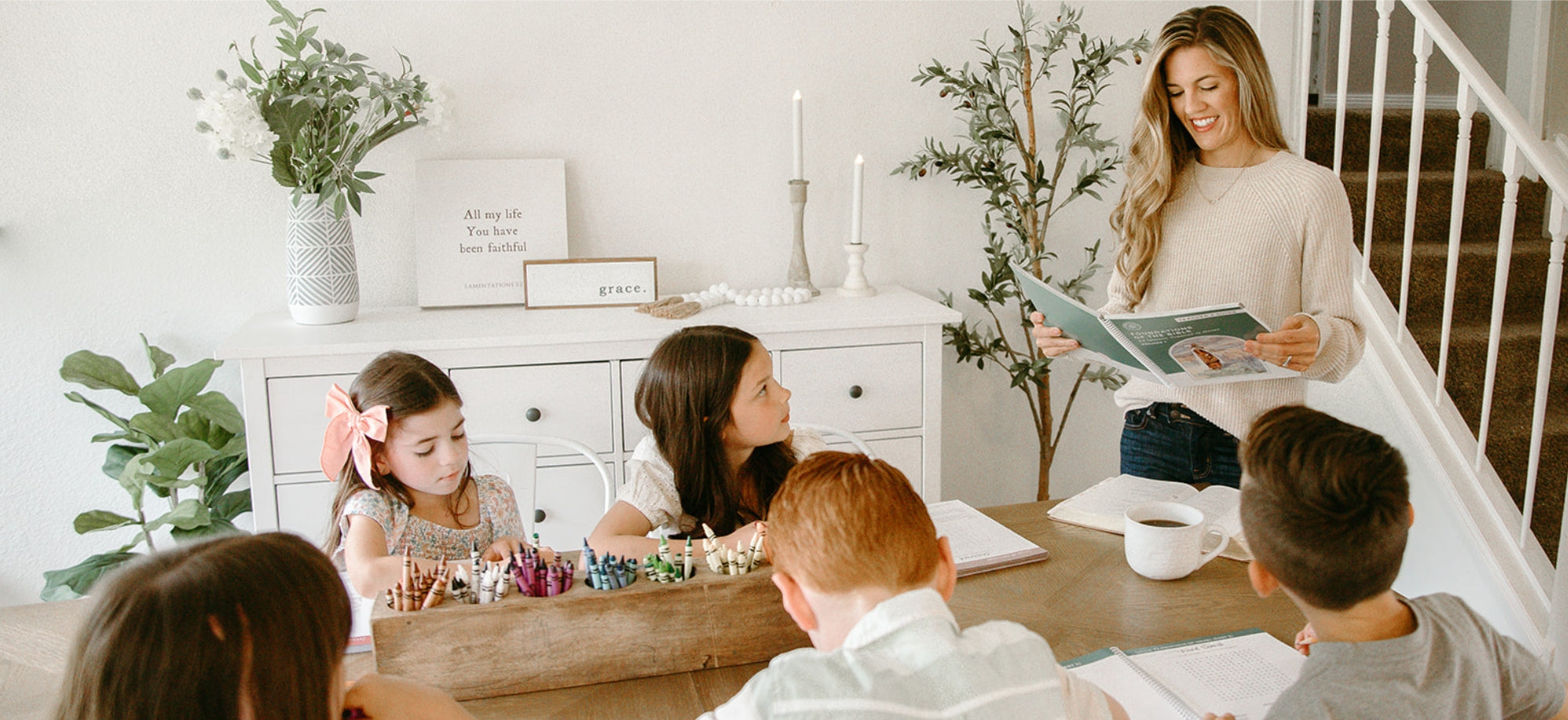Tips for Homeschooling With a Toddler
I am about to wrap up my fourth year of homeschooling, but this was my first year homeschooling two grade levels (third and kindergarten) with a busy toddler. I've homeschooled with a toddler before, but this year felt more challenging because I was doing two grade levels. I had pretty low expectations for the year (haha), but thankfully, I found things along the way that worked well.
I'm here to let you know it doesn't have to be intimidating, and if you implement some of these tips, it will hopefully be enjoyable and manageable!
Here are 6 tips to help you homeschool with a toddler.
1. Put toys in/near your classroom.
We turned our formal living room area into a classroom (the best decision I made!), so we thankfully have a designated schooling area. Mid-school year, I put our play kitchen and pretend food in the classroom. This allowed my toddler to play near us while we were doing school. If he gets too rowdy, I ask him to make us some coffee and food, and he lights up with excitement and gets busy. Giving him a "job" while we do our bookwork has been so helpful. It also allows my 6-year-old to take a break and play with him while I'm doing school with my oldest.

2. Set up a playdough station.
Playdough has been a life-saver for our school year. I am a huge fan of playdough and take it with me everywhere! It's easy to clean, unlike kinetic sand, which I have banned from my house lol. My toddler will play with playdough for hours. He has tons of cooking utensils and is always baking. I make a big batch of homemade playdough because we use so much.
During the school week, I leave all the playdough toys out on our formal dining room table (nothing is really formal in our house anymore haha). It sits across from our school area, so I can see him, which is nice. Again, he's in our vicinity, so I can see him, but he's not distracting us. He likes to make us "food" while we do school.

3. Include them as much as possible.
My toddler loves to be included in school time. He sees his older siblings doing school and wants to be like them. I have found that it actually makes transitioning to school easier when they are older, but it also requires patience while they are younger. My toddler especially LOVES science day. Whenever we do a craft or experiment, I make sure to include him with his own supplies. I also print extra coloring worksheets or workbooks so he can have his own copy to color in to be like the big kids. This has worked really well!

4. Rotate school time for older kids.
Since I am teaching two grade levels, I rotate my kids into the classroom so I can work with them one-on-one. My kids have independent work, like their handwriting and math warm-ups. But I need to be with them one-on-one for their language arts and math lessons. Therefore, I rotate the kids, and whoever is not doing school gets to play with the toddler. This helps the kids get breaks and my toddler gets one-on-one play time, which he loves.

5. Save harder subjects for nap time.
If your toddler is still napping, try doing some school work during their nap hours. This will allow you to give your full attention to your older kids and knock out those more challenging subjects with fewer distractions. I have to save nap or rest time for my work hours, so I just push through, but if you can do this option, it's great! However, I do save our chapter book read-alouds for bedtime so I can read to the older kids without distraction.

6. Don't overbook your schedule.
School is going to take longer with a toddler. There will be interruptions and messes you will need to tend to. Do your best to avoid scheduling appointments and activities during school time. For us, that means nothing until after 12:00/1:00 pm. By not overbooking your schedule, you will be less stressed because you don't have to rush school to be somewhere. You need flexibility for your day, and controlling your calendar is the best thing you can do. I do my very best to book appointments and playdates after 1:00 pm.

I hope you find these tips practical and helpful! Give yourself time to adjust and find a rhythm for your family. It may take a month or two to figure out how to juggle it all, but soon you'll get a rhythm and routine that works for your family unit.








